With 55 Australian suffering a Sudden Cardiac Arrest each day, knowing what to do means that you can save someone's life. You can learn more about Sudden Cardiac Arrest in our article. Learning the steps of the Chain of Survival will help you to not get caught in the caos of an emergency, assess the situation and act quickly. Here are the steps:. Each link in the Chain of Survival is represented by a single word to help us quickly, and easily, remember what to do. Call - Call 000 - Emergency Services can talk you through the steps to perform CPR, and take over from you when they get there. In some states they can also guide you to the nearest AED. Push - Perform CPR - CPR is a skill.
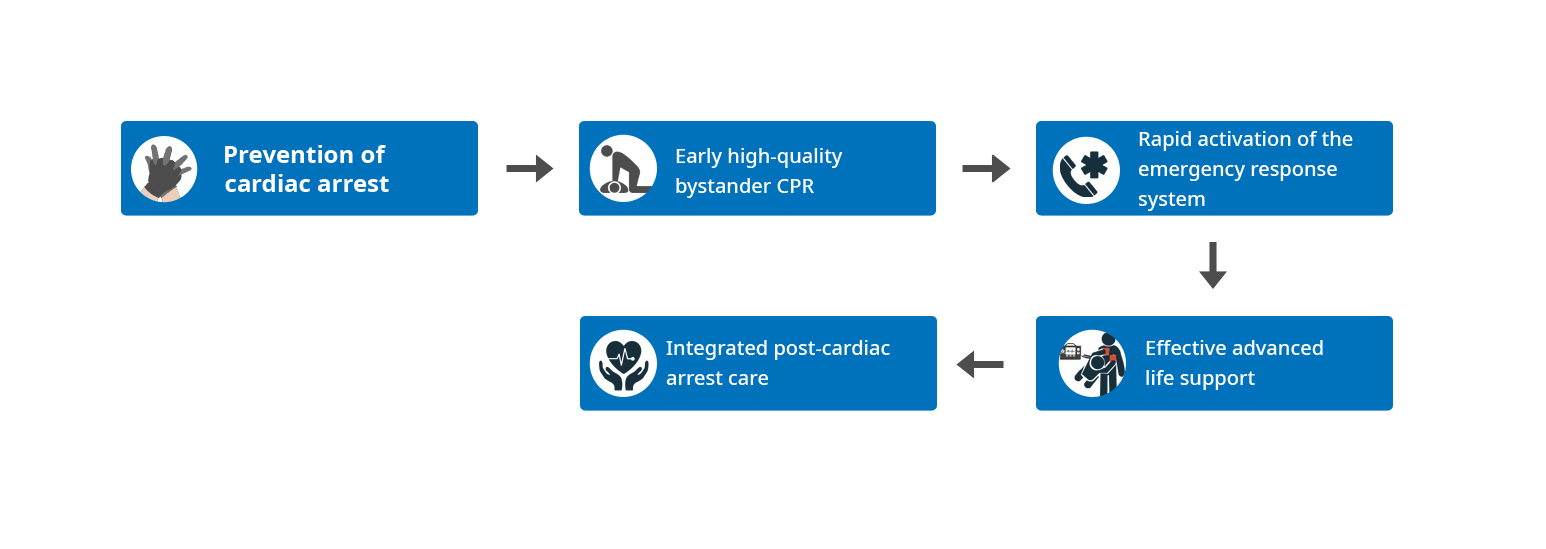
Child BLS Pediatric Chain of Survival
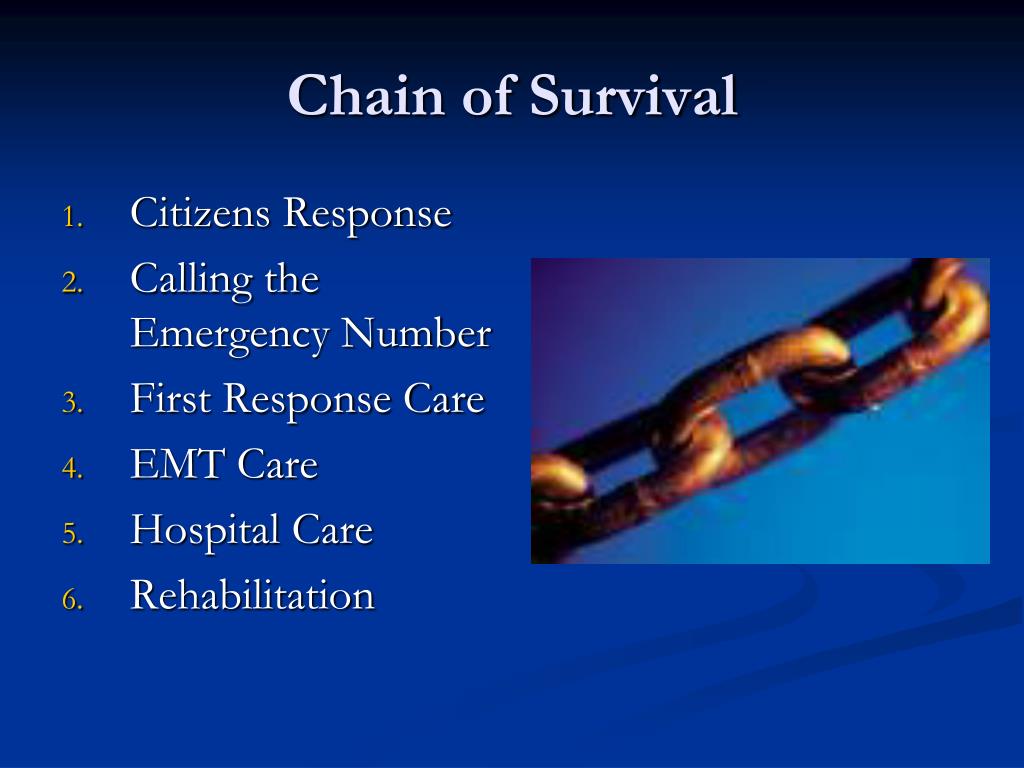
PPT Chain of Survival PowerPoint Presentation, free download ID5834945

Touch someone's life GOV.WALES
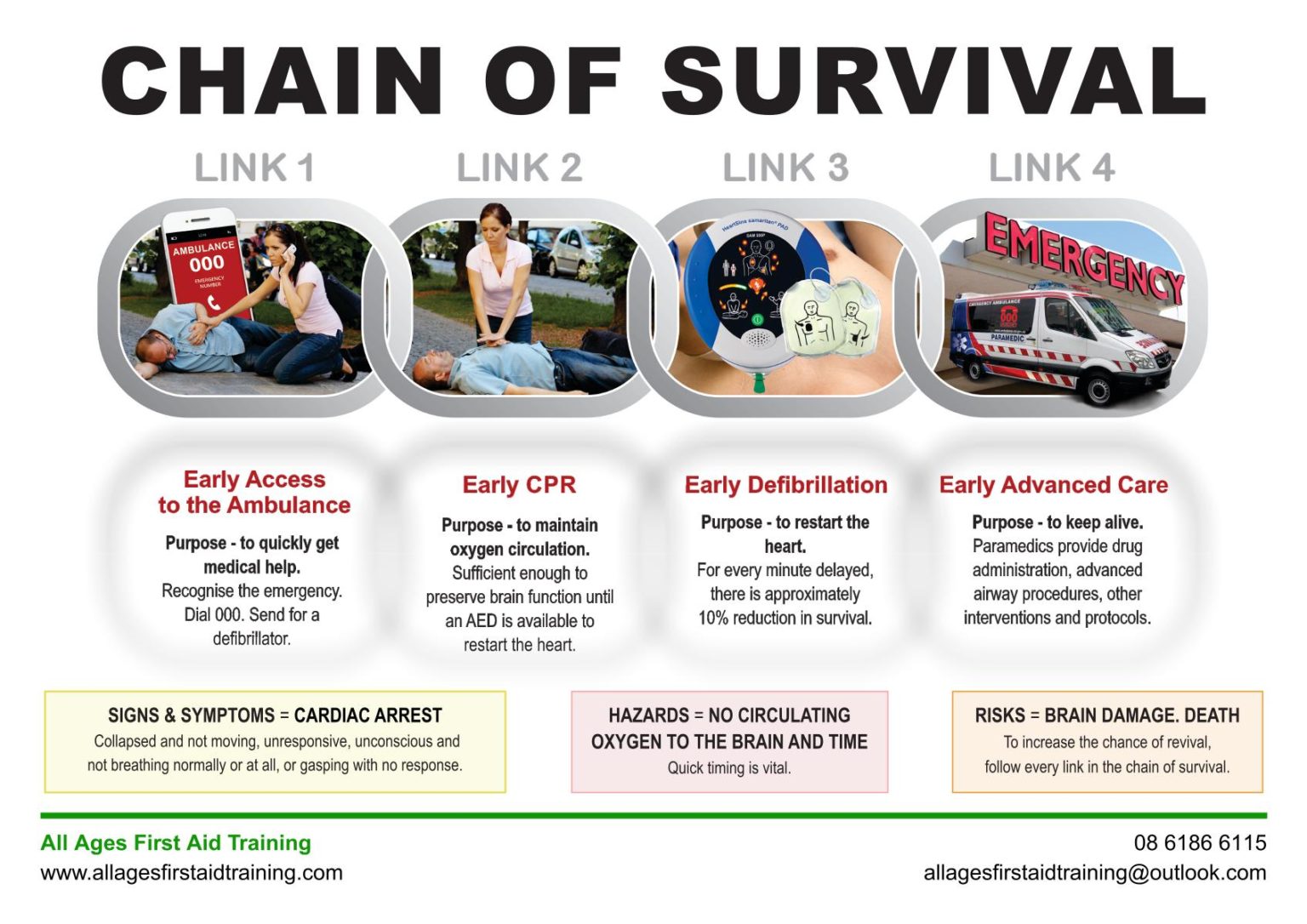
Free First Aid Charts All Ages First Aid Training

The chain of survival Not all links are equal Resuscitation
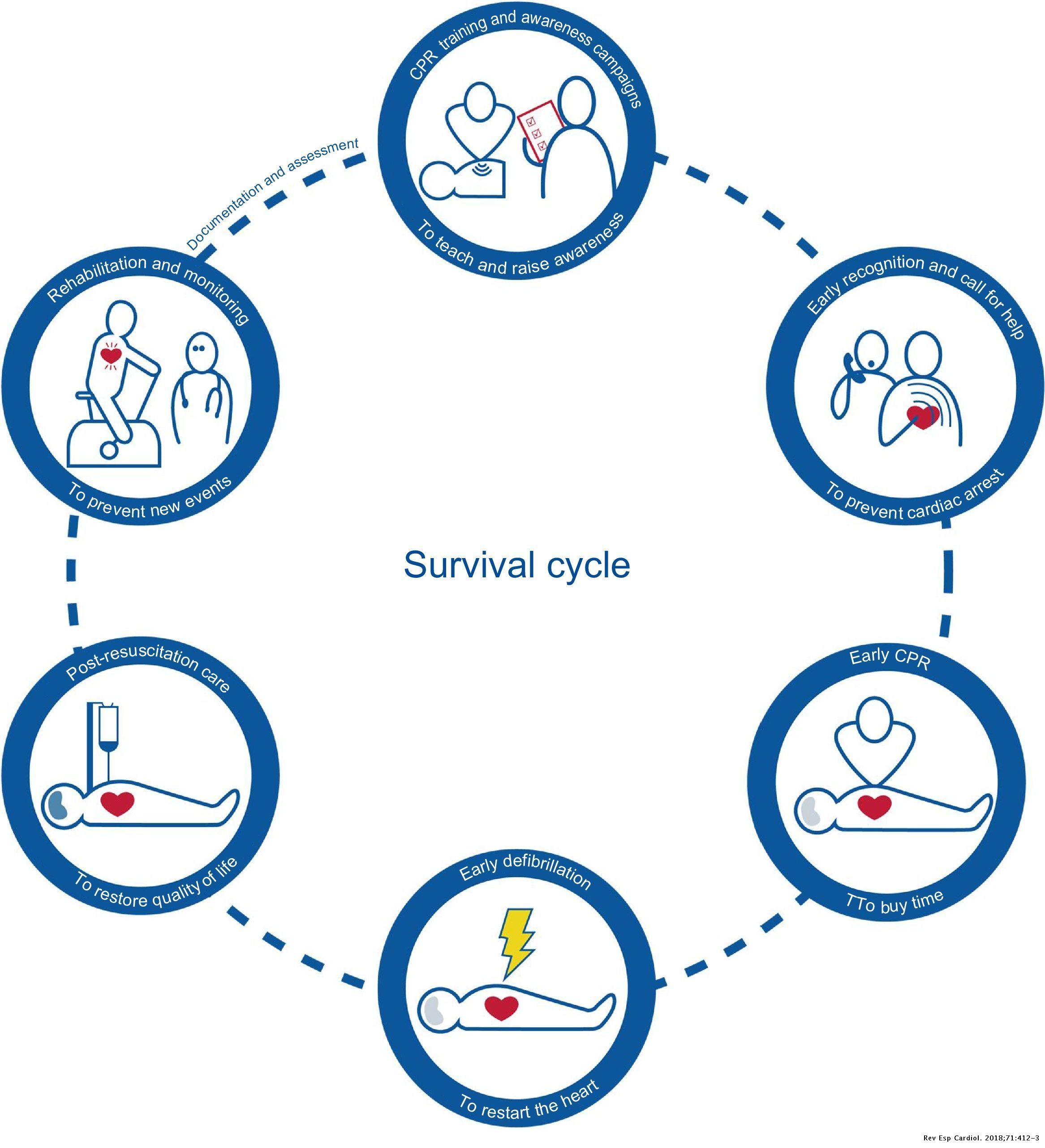
Should the CRA Chain of Survival Be the Survival Cycle? Revista Española de Cardiología

What is the Pediatric Chain of Survival? HSI

Chain of survival simple visual of what to do in the event of cardiac arrest. Cpr, Cardiac

Chain Of Survival Steps Australia ScienceHUB
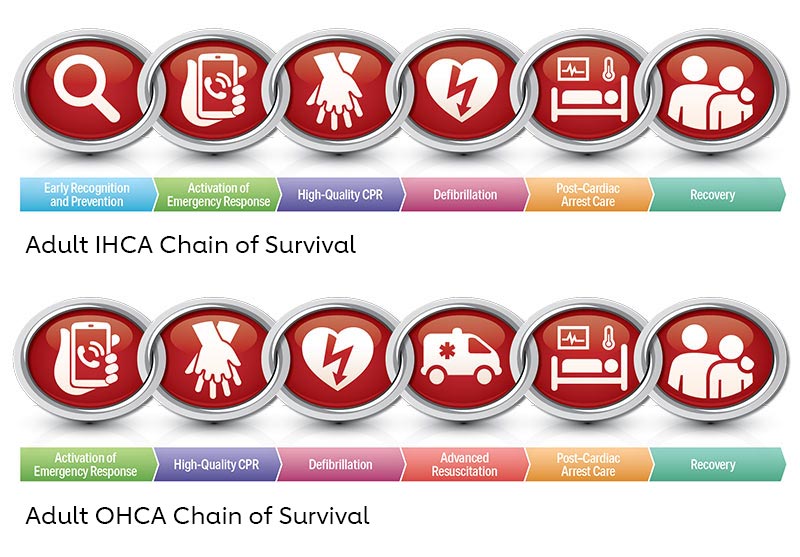
Medical Professionals TOTAL EM

Cardiac Chain of Survival Diagram Quizlet

Chain Of Survival Steps Australia ScienceHUB

PPT BASIC LIFE SUPPORT BLS) PowerPoint Presentation, free download ID10019860

Chain Of Survival Steps Australia ScienceHUB
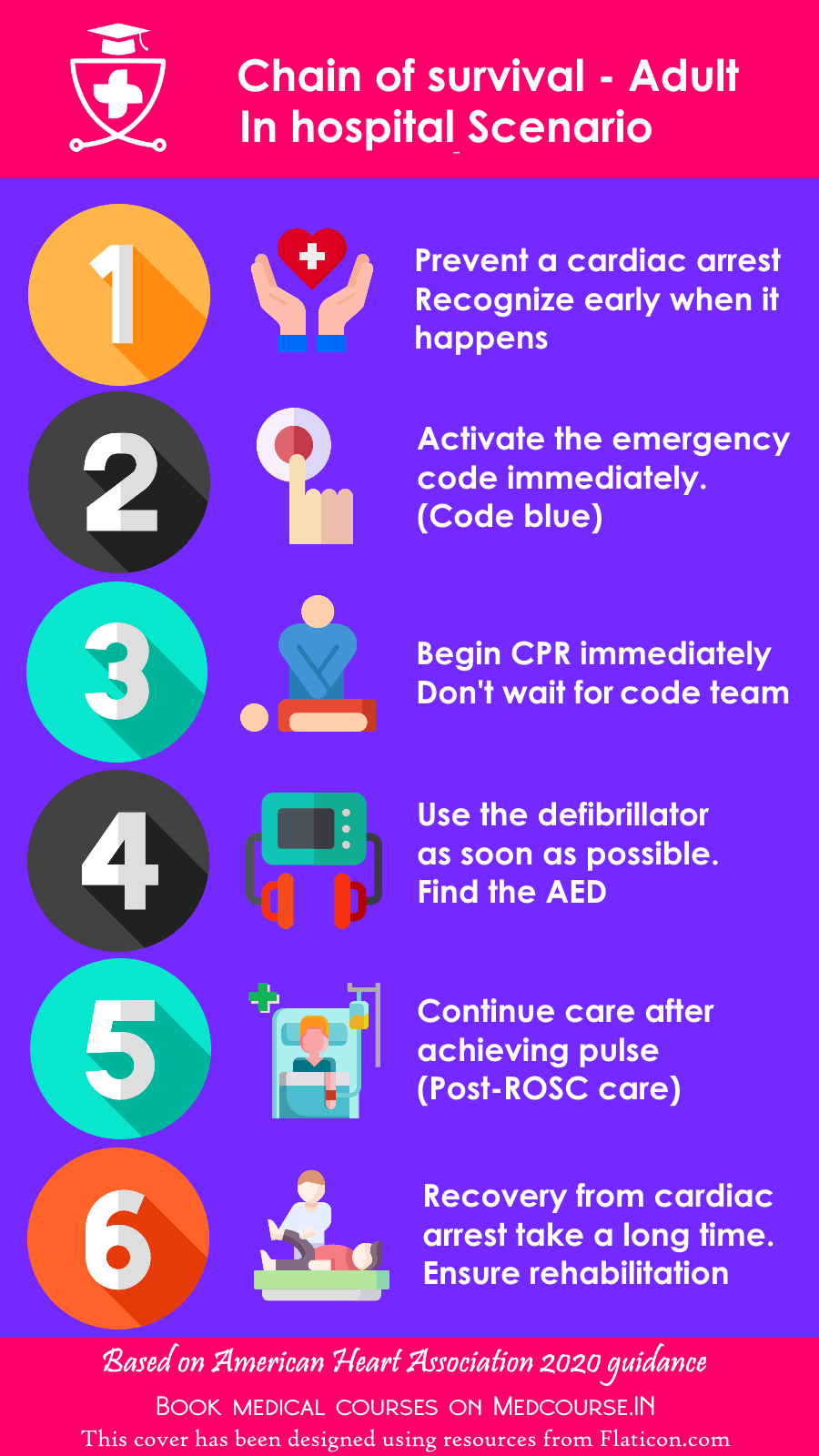
The adult chain of survival BLS 2021 MedCourse India
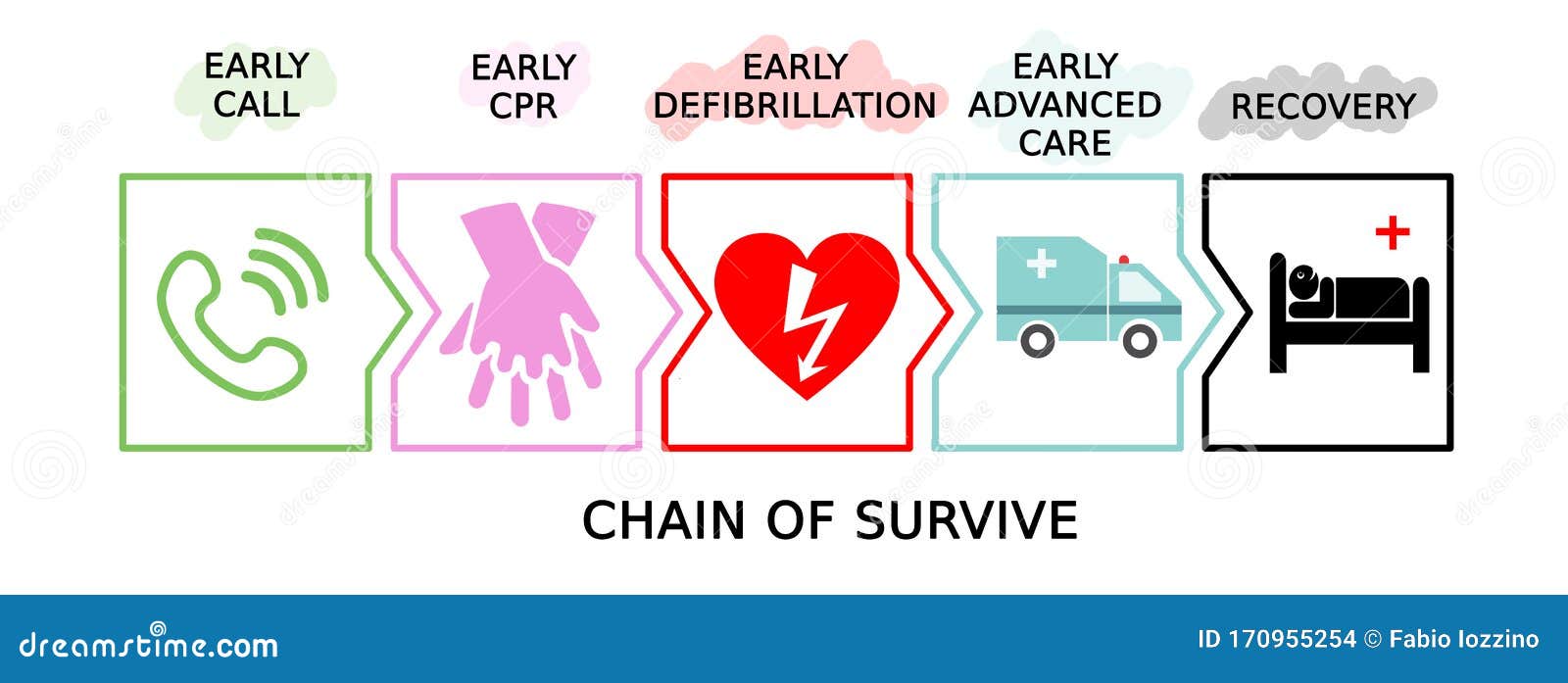
The Chain of Survival . Blsd Protocol To Save Heart Attack People. Early Defibrillation Concept
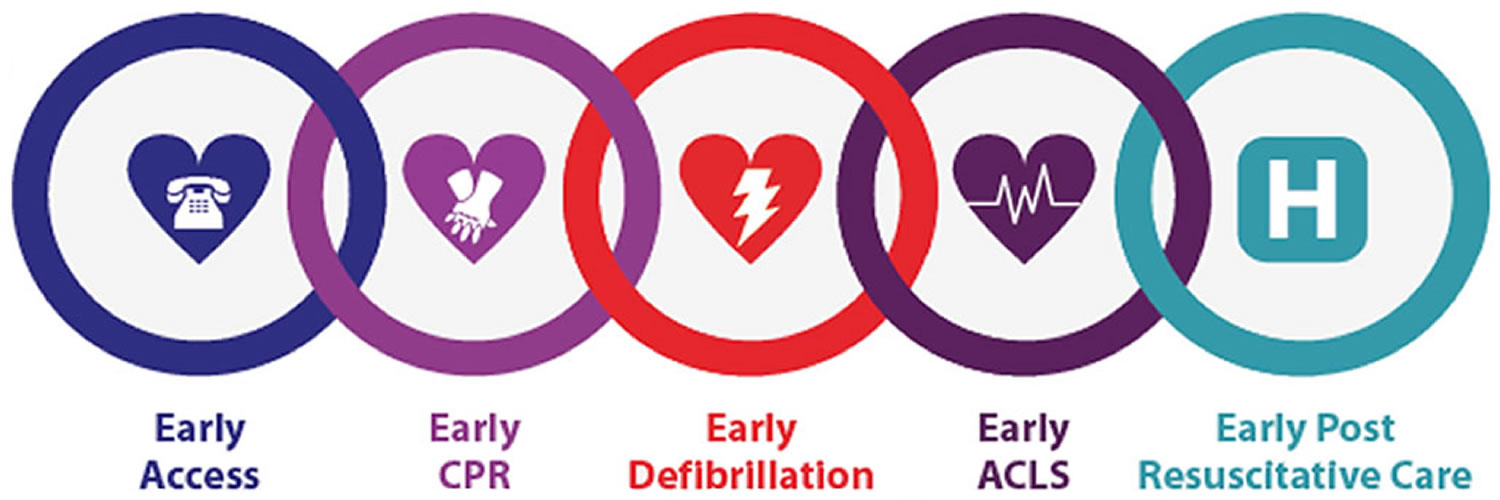
Chain of survival or cardiac chain of survival

Key Steps for Chain of Survival CPR Select
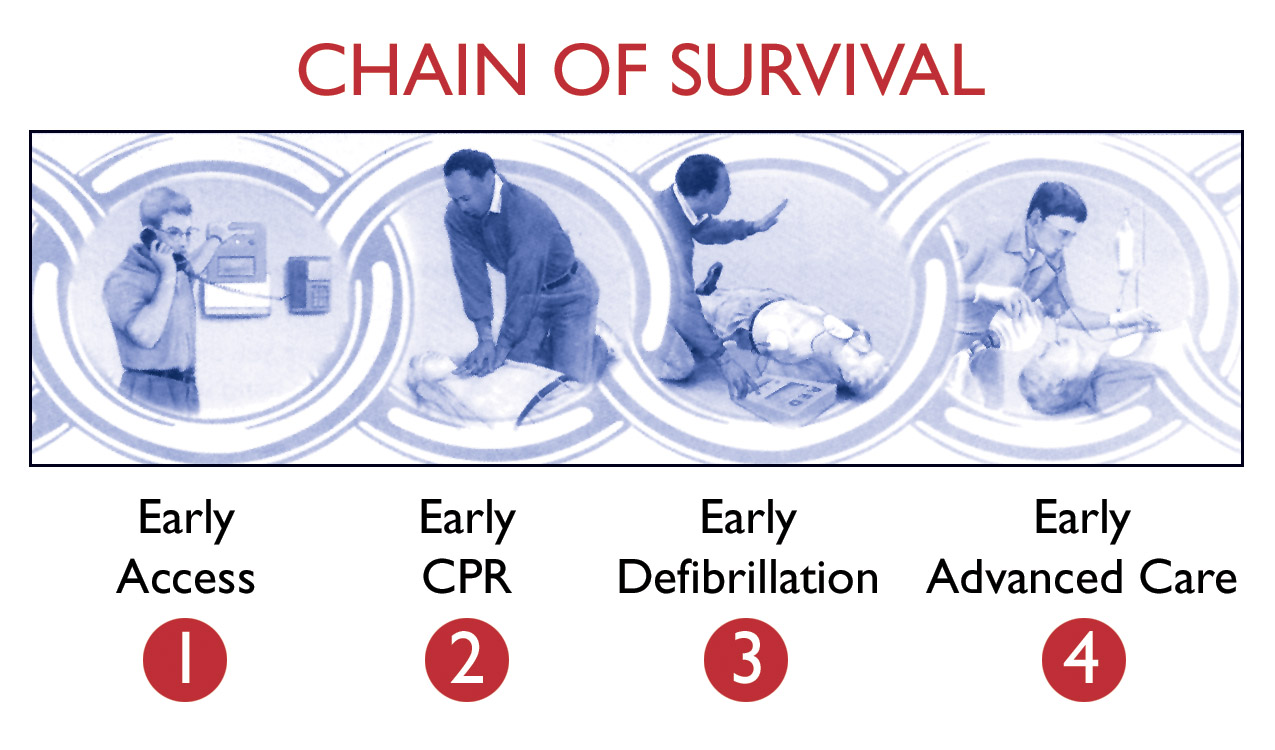
ABOUT HALSTEAD FIRST RESPONDERS

Key Steps for Chain of Survival CPR Select
Emergency telephone numbers. Ambulance, Fire, Police Call triple zero (000) Poisons Information Centres 13 11 26. Diver Emergency Services (DES) 1800 088 200. Australia Venom Research Unit (24 hr) (03) 8344 7753.. Sudden cardiac arrest, sometimes called cardiac arrest or SCA, is one of Australia's biggest causes of death and disability. It affects an estimated 33,000 Australians each year. But immediate CPR and defibrillation in the first few minutes may reverse a sudden cardiac arrest to save a person's life and reduce any long-term neurological impairment.